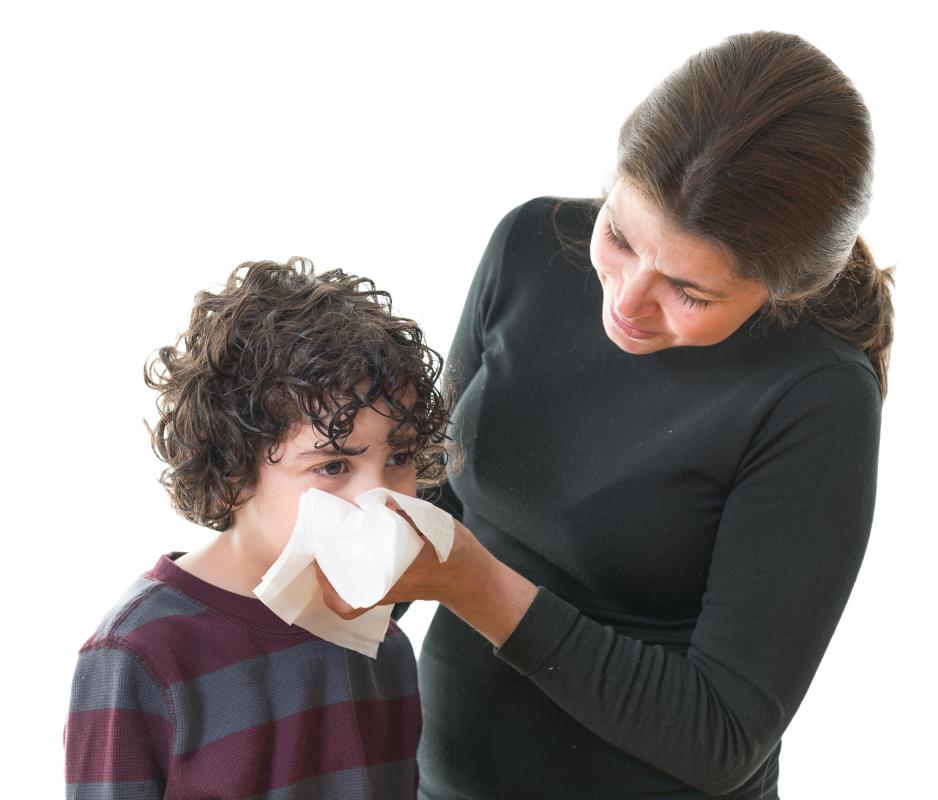At TheHealthBoard, we're committed to delivering accurate, trustworthy information. Our expert-authored content is rigorously fact-checked and sourced from credible authorities. Discover how we uphold the highest standards in providing you with reliable knowledge.
What Is a Prophylactic Vaccination?
A prophylactic vaccination is a selective exposure to a weakened or diluted form of an infectious agent to encourage a patient to form antibodies. If the patient is exposed to the infectious agent in the wild, the antibodies will prevent the onset of infection. Numerous conditions are preventable through vaccination. The elimination and reduction of vaccine-preventable illnesses like polio and smallpox has been a significant victory for public health.
In a prophylactic vaccination, the goal is to prevent the development of disease. This contrasts with a therapeutic vaccine used in the treatment of disease. Therapeutic applications are seen most commonly in cancer treatment, where a patient may receive a targeted vaccine to help the body attack a cancerous tumor. Such vaccines are beneficial for treatment but do not serve long-term goals of cancer prevention.

Prophylactic vaccination is recommended for all members of society, with some exceptions, by public health agencies around the world. Some vaccines cannot be universally administered because they pose risks; children with cancer, for example, cannot receive routine vaccinations because their immune systems will not be able to form antibodies and they could get very sick. Conditions like measles, mumps, tetanus, and rubella are routinely prevented through vaccination.

Other prophylactic vaccination may be recommended only when people are at particularly high risk of a disease. Older adults and people with a history of respiratory disease may get flu vaccines to prevent flu-related fatalities. Likewise, travelers may get extra vaccines to protect them against diseases not normally found in their homeland. A similar procedure can be seen in the military, where service members receive vaccines before deployment to keep them healthy in the field.

It is also possible in some cases to receive a prophylactic vaccination after exposure to an infectious agent to prevent the onset of full-blown disease. Rabies is a common candidate for this kind of vaccination. Rabies vaccines can be expensive and time-consuming, and thus are not recommended for the general population. In the event a person is bitten by an animal and there are concerns about rabies risks, the patient can receive a prophylactic vaccination.

Recommendations for prophylactic vaccinations are periodically updated. Patients can discuss which vaccines they need or could benefit from with their doctors. It is also important to keep up with booster shots, as vaccines do not last for life, and an outdated vaccination may not provide protection. Patients who are not sure about when they were last vaccinated can ask for a copy of their record.
AS FEATURED ON:
AS FEATURED ON:















Discussion Comments
Prophylactic vaccines are probably the number one medical advancement of the past 500 years. There have been great discoveries, but knowing that someone can be inoculated against a terrible disease has to be one of the big ones. It led to the eradication of smallpox, and when was the last time you heard of anyone having the measles, mumps or pertussis? It can happen, but vaccines have done so much to keep so many people healthy. It's really incredible how something as simple as a vaccine has changed the history of mankind. Whoever would have guessed we'd come so far so quickly?
I do not understand the current wave of craziness of people who do not want to vaccinate their children. The one study that showed a possible link between vaccines and autism has been repeatedly disproved, and indeed, the researcher who conducted the study has been pretty much kicked out of the scientific community.
I most sincerely hope their children never catch something awful like diphtheria or something similar that could kill them. Most childhood diseases are uncomfortable, but some, like diphtheria, can be deadly. I just don't see why a parent would take that kind of risk with their child's life.
Post your comments